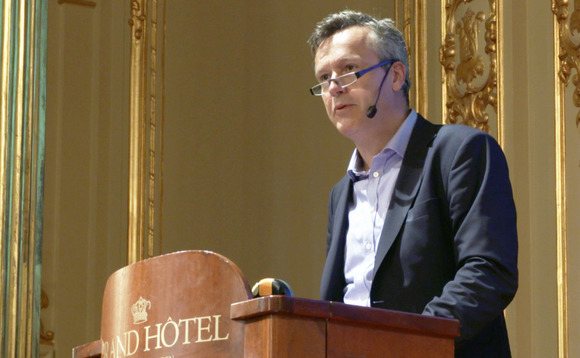
Reputational risk continues to haunt Swedish private equity

The Nordic private equity industry has struggled with reputational issues for years and public image remains at the forefront of the industryтs concerns, according to EQT's Thomas von Koch. Mikkel Stern-Peltz reports
"The most important asset EQT owns is its brand – something that has taken 22 years to build, but can be ruined in a week," Thomas von Koch told 130 delegates at the unquote" Nordic Private Equity Forum in May.
The GP's CEO and managing partner stressed the importance of the industry as a whole investing and acting responsibly, as well as engaging with the public, politicians and the media, to improve private equity's reputation.
Public and political perception of private equity in the Nordic countries has long been patchy in the region, and undeservedly so, according to the industry veteran.
He expressed astonishment that private equity is still seen as shortsighted and tax-evading, despite its contribution to Swedish society and economy – pointing out that portfolio companies employ around 4% of the Swedish workforce and their combined turnover is around 8% of Sweden's GDP.
Ultimately, the huge amount of capital coming into the industry at the moment is not the result of being good or responsible investors, but rather Nordic private equity's returns" – Thomas von Koch, EQT
In his view, it is not fully understood how important the private equity industry is to the country, by the media, public or by politicians, but that it was also partly self-inflicted, as the industry has not been forthcoming in explaining its worth.
EQT's von Koch noted that Nordic private equity could take credit for a significant portion of economic and wealth growth in Sweden, as well as being a driver for change, but that the industry has changed since its breakthrough in the mid-90s.
From acting in the shadows, the industry is now in the public spotlight more than ever, as private equity became an important part in Swedish and Nordic societies, finding itself increasingly in the eye of regulators and politicians.
Hiding would not create the industry's licence to operate, von Koch said, adding that private equity should work towards being seen as growth capitalists, not the "risk capitalists" and tax evaders they are currently portrayed as.
Ghost of scandals past
Recent years have seen the Nordic region's private equity sector at the centre of several negative stories about tax avoidance, greed, job-slashing and portfolio company scandals.
The most notable private equity related media storm in recent years was the accusation of misconduct at Triton-owned care home operator Carema, which became a major story in Sweden – branded the "Carema Scandal". It shone an unflattering light on the GP – and the wider industry – which failed to mount any substantial defence in a timely manner, choosing instead to stay silent and allowing the media to set the agenda of coverage.
More recent examples of damage to the industry's reputation in the Nordic countries include the bankruptcy of Altor-owned Danish shipping fuel company OW Bunker following a huge fraud-related loss, and accusations by a Swedish business daily of refugee-crisis-related profiteering by IK Investment Partners' care services company Attendo.
Since the Carema Scandal, environmental and social governance factors have become an increasingly important topic in European private equity, with the Nordic industry at the forefront of the evolution, to some degree – something unquote" has previously covered in depth.
Despite von Koch's efforts in his keynote to inspire action for the industry being responsible owners and members of society, not everyone was impressed by his aspirations on the industry's behalf, with one delegate suggesting the keynote had perhaps been somewhat too high-minded, saying, "It was all a bit ‘greater good'."
Despite speaking at length about the positive impact of private equity on the Nordic economies – levelling a few barbs at the Swedish politicians in the process – and how EQT as an organisation aims to be responsible contributors to the societies in which it operates, von Koch did concede that the feel-good factor is not what raises funds.
"Ultimately, the huge amount of capital coming into the industry at the moment is not the result of being good or responsible investors, but rather Nordic private equity's returns," von Koch said, suggesting the asset class had outperformed most others in the past two decades.
Latest News
Stonehage Fleming raises USD 130m for largest fund to date, eyes 2024 programme
Sponsor acquired the public software group in July 2017 via the same-year vintage Partners Group Global Value 2017
Stonehage Fleming raises USD 130m for largest fund to date, eyes 2024 programme
Czech Republic-headquartered family office is targeting DACH and CEE region deals
Stonehage Fleming raises USD 130m for largest fund to date, eyes 2024 programme
Ex-Rocket Internet leader Bettina Curtze joins Swiss VC firm as partner and CFO
Stonehage Fleming raises USD 130m for largest fund to date, eyes 2024 programme
Estonia-registered VC could bolster LP base with fresh capital from funds-of-funds or pension funds









